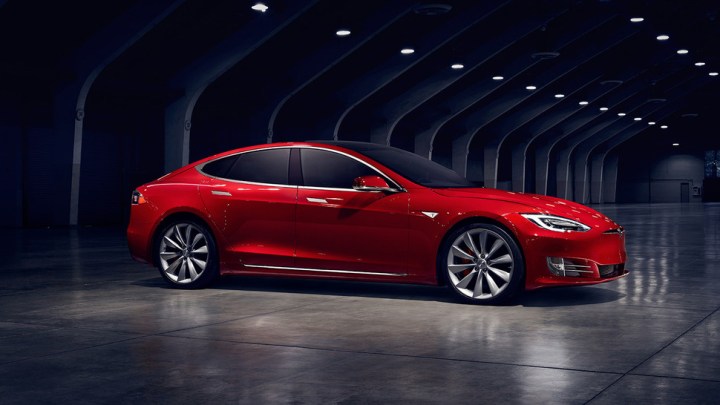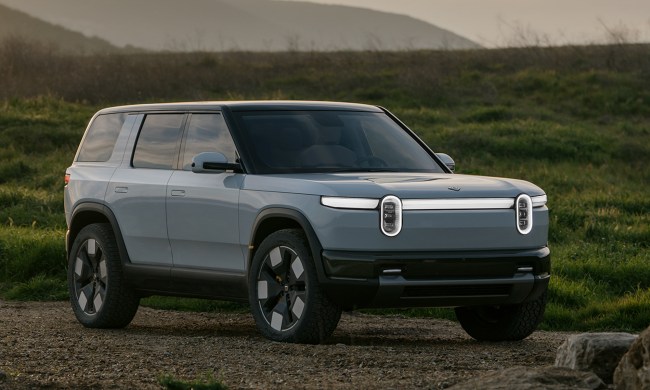
No doubt a result of the new grill-less design, the 90D (not to be confused with the more potent P90D) increases its range by 9 miles per charge over the previous design. As for the “Ludicrous” P90D, its range actually gets a bigger bump, from 253 miles to 270.
The other factor in the 90D’s new benchmark is the fact that the EPA actually tested the car with a 90kWh battery. Until now, EPA estimates were based on an 85kWh battery, plus percentage increase approximations. Sounds a bit lazy on the EPA’s part, but to be fair, it feels like Tesla updates its hardware or software every few weeks, so it gets a little tough to keep up.
Read More: Tesla Gives Its Model S Its First Facelift
Beyond a longer range, the refreshed Model S sedan hastens its charge time a bit with a new 48A system (as opposed to the previous 40A unit). For folks across the pond, the good news continues as Tesla has added 150 “Destination Chargers” to its Euro recharging network.
It was a given that the whole debate over range anxiety would fade as battery and charging technology improved, but with the rate of Tesla’s innovation, critics may have to look for new arguments against using an EV as the main form of transportation. Though the Model S certainly isn’t in everyone’s budget, and Tesla’s more affordable option, the Model 3 is still a ways from production (we can probably count on some delays), other automakers who are diving into pure EVs will likely hit that 300-mile threshold soon.


